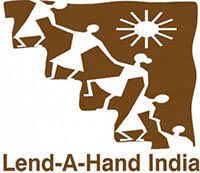
Website Poverty Action Lab
Job Description:
The Abdul Latif Jameel Poverty Action Lab (J-PAL) J-PAL was established in 2003 as a research center at the Economics Department at MIT. Since then, it has grown into a global network of researchers who use randomized evaluations to answer critical policy questions in the fight against poverty. J-PAL is propelled by a team dedicated to research, policy, training, and other vital work, supporting J-PAL’s mission to reduce poverty by ensuring that policy is informed by scientific evidence. J-PAL South Asia, the regional office which is based at the Institute for Financial Management and Research (IFMR) in India, analyses and disseminates research results and builds partnerships with policymakers to ensure that policy is driven by evidence, and that programs proven effective are scaled up. We have a growing number of partnerships in Bangladesh, India, Nepal, Pakistan, and Sri Lanka. For more information on J-PAL SA, please see http://www.povertyactionlab.org/south-asia.
The Policy team at J-PAL South Asia (J-PAL SA) disseminates findings of J-PAL’s research; develops relationships with governments, civil society, and academic stakeholders; catalyzes scale-ups and replications of effective projects; and assists in conceptualizing new research projects. The team works closely with the global J-PAL office based at MIT to align the regional strategy with broader organizational objectives.
Project Description
Many poor children around the world underperform in school math. In India, 97% of children now go to school, but less than half of 5th grade children can perform arithmetic beyond 2nd grade level (ASER Centre 2015). In contrast, research in cognitive science reveals that infants and preschool children in different societies, with or without formal education, have an interest in and a shared, intuitive understanding of number and geometry (e.g. Dehaene et al. 2006; Jara-Ettinger et al. 2017; Newcombe and Huttenlocher 2003; Spelke 2011). Moreover, poor kindergarten children can play math games that draw on this understanding as well as more advantaged children do, both in the U.S. (Gilmore, McCarthy, and Spelke 2007, 2010) and India (Dillon et al. 2017).
Math Games is an innovative math curriculum that aims to develop children’s intuitive concepts of number and geometry, informed by decades of cognitive development research, and rigorously evaluated through three randomized evaluations in Delhi. We find that children exposed to these games exhibited gains innate as school math skills compared to those who were not exposed to the games.
The Government of Andhra Pradesh is partnering with J-PAL to conduct a pilot of the Math Games. This is an excellent opportunity to obtain a strong understanding of how children learn mathematics, the economic and policy issues relating to early childhood education and what it takes to scale evidence-based programs.
Roles and Responsibilities:
The Research Intern will work closely with the Associates, Managers, PIs and the field team to undertake the following tasks.
1. Support the team in redesigning, translating the games, teacher manuals and teacher training materials to incorporate state specific language and content
2. Support the training of selected master trainers
3. Support to RA and Policy team to iron out the details of the pilot implementation and teacher training.
4. Support in the identification of vendors to print materials, liaise with vendors to deliver final products, manage logistics to distribute materials
5. Support data collection activities in the field such as piloting of questionnaires, training of survey team to collect data, supervise data collection in the field
6. Maintain compliance with all J-PAL protocols and policies.
7. Assist in preparation of documents and presentations for government meetings
8. Responsible for general project documentation.
Desired Qualifications and Experience:
● Bachelor’s/Master’s degree in economics, education, applied psychology, cognitive science or related fields.
● Experience 0-2 years, experience working in cognitive science/education sector preferred.
● Experience teaching in schools, and or working with teachers is preferred
● Experience doing field data collection is a plus
● Familiarity with RCTs is a plus
● Excellent management/organizational skills and able to solve unexpected problems.
● Flexible, self-motivating, independent and manages multiple tasks efficiently.
● Ability to deal with unstructured and changing environments.
● Attention to detail.
● Fluency and excellent communication skills in English and Telugu
Note on Work Authorizations:
Candidates must have work authorization to work in India.
How to Apply
If you are interested in this position, please click on the apply button on the JD below; the first-time users will be asked to sign up and upload your CV, cover letter, and academic transcripts (optional).
Any queries, please write to recruitment.jpalsa@ifmr.ac.in.
To apply for this job please visit jpalsouth.asia.





